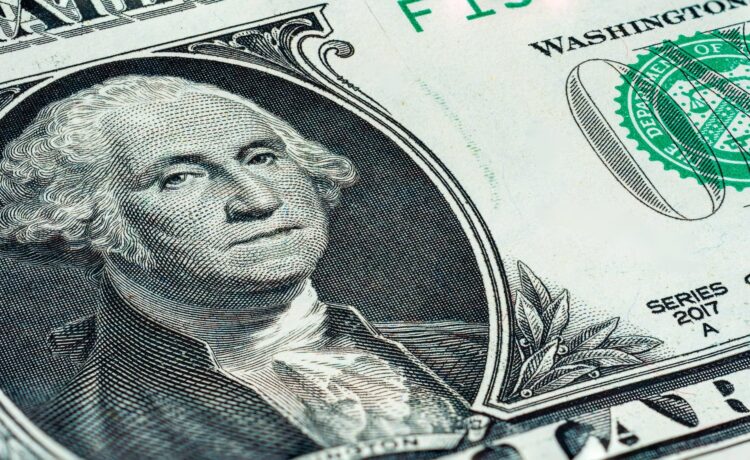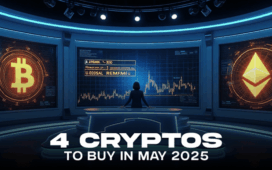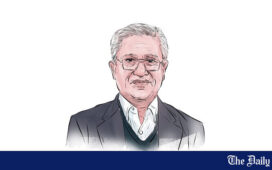Whether you want a strong U.S. dollar or a weaker U.S. dollar depends on where you stand. If you run a company that sells overseas, a weaker dollar helps you, because it makes your products cheaper for foreigners to buy, and you might sell more. But let’s say you’re traveling to Europe and looking forward to a shopping spree — a stronger U.S. dollar makes the whole thing cheaper.
What many Americans can agree on is that maintaining the U.S. dollar’s status as the world’s reserve currency is crucial. There are a whole set of knock-on effects that come with what economists call the “exorbitant privilege” of being the world’s reserve currency.
But there is rising concern that this status is under threat. “Marketplace Morning Report” host David Brancaccio spoke with Gillian Tett, Financial Times columnist and a member of its editorial board, about why we should care. The following is an edited transcript of their conversation.
David Brancaccio: Why would a proud American want our dollar to be the world’s reserve currency? What does it get us?
Gillian Tett: Well, the point about having a reserve currency is that it means that everyone else around the world has to buy your currency, or has to at least invest in it and pay attention to it, because it’s really the pillar that holds up the entire global financial system. And, in history, there have been about six different reserve currencies over time. And the current White House — and most Americans — like to think that America is dominant on the world stage and therefore should be the reserve currency.
Brancaccio: OK, is there a serious argument that that might be under threat in the fullness of time here, given the uncertainty of U.S. policy?
Tett: Well, there are two separate but related questions going on at the moment. One of them is whether the American dominance, the empire, has reached the peak of its powers, and it’s going to decline in the coming years relative to other countries. And the fact that China is now becoming increasingly powerful is causing people to ask whether they can assume that America and the American dollar will stay strong, or rather, have the role of the reserve currency, forever. But secondly, the administration is now voicing questions about whether having the world’s reserve currency is always a good thing or not, because when a currency is a reserve currency, everyone goes and buys it, and it tends to strengthen. Which sounds brilliant if you’re a tourist wanting to have cheap holidays outside America. But actually, if you are an industrial company, manufacturing, say, and you’re trying to compete on the world stage, having a strong dollar is not necessarily good.
Brancaccio: Yeah, a weaker dollar would make — let’s say you’re exporting something made in Michigan — cheaper to buy, and so maybe you’d sell more of it.
Tett: Well, certainly the thinking that is going around amongst people like [Vice President] JD Vance or Stephen Miran, the chair of the Council of Economic Advisers, and others, is that actually having a strong dollar has hurt America as much as it’s helped. In particular, it’s made it hard for American industry to compete with other countries like China. It’s sucked in a lot of imports from other countries, and that’s created this massive trade deficit. So there’s a school of thought which says, “Actually, America should try to weaken its dollar.”
But the really big question is this: If America wants a weaker dollar, can it still keep its status as a reserve currency or not? Because if you tell people you want to weaken the dollar but still be the reserve currency, some people might say, “Oh, not really sure I want to keep hanging on to my dollars as reserve currency, because we can’t assume the value is going to be stable long term.” So the really difficult circle that the administration is trying to square is how to find a way to reconcile those two very different goals.
Brancaccio: And there’s been talk that there’s like maybe a single document that would set out this idea of weakening the U.S. dollar as a general principle. Some called it the “Mar-a-Lago accord.” Are you a believer that there’s actually like a document bound in fine leather, that if we could just open it up we’d really understand what’s going on?
Tett: Well, I think it’s an exaggeration to say that the Trump team has some secret master plan or manual, which they are essentially rolling out and operating to. But there are people around him who definitely have a vision for how they’d like to reorder the global financial and economic system. And if you tie together the statements from many other people, you see a pattern, which is that firstly they want to reorder the global financial and trading system to cut the trade deficit. They want to keep the dollar as a reserve currency, because they know that’s a source of a lot of their geopolitical power. But they’re also questioning whether having constant dollar strength is a good thing or not. And the thing to realize is that, ironically, the very fact they’ve been talking about all this means that — without actually doing anything — the dollar has been weakening anyway.
Brancaccio: If you look back at the dollar versus a basket of currencies this year, it’s down. However, tariffs can be inflationary, economists tell us, and if we look forward in the coming weeks and months, we may see more inflation in the U.S., which would have the effect of raising the strength of the dollar, and that would go counter to this whole idea.
Tett: And the fact it hasn’t strengthened, it’s actually weakened instead, suggests two things: Firstly, some traders and economists are taking what the administration has been saying about not liking a strong dollar very seriously, and essentially doing, if you like, the market’s dirty work for it by simply selling off the dollar ahead of time. But the very fact we’ve had these flip flops in policy and these dramatic changes in the policy regime is causing many investors outside America to get pretty nervous about holding American assets in general, because they just don’t feel they can trust where policymaking is going in the future.
Brancaccio: Wait, that’s money that’s financing my lifestyle here. Right? I mean, they’re buying the debt so that I don’t have to pay such high taxes.
Tett: Well, absolutely. Because one of the important things to realize about having a reserve currency is the very fact that everyone has to buy the dollar means that money comes into America. They buy lots of American debt, and that keeps the interest rate that’s set in the markets, according to investor supply and demand, that keeps the interest rate low — unusually low. Because in most countries in the world, if you had debt as big as America has today, you’d have a much, much higher level of interest rate in the markets, because investors would demand compensation for taking the risk that you might default. So if America was ever to lose its status as reserve currency, one thing you would be able to predict is that interest rates in the markets would go up, and that, of course, would affect the price of mortgages and credit card borrowing and things like that.





